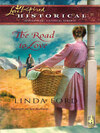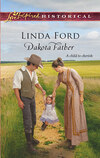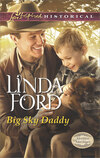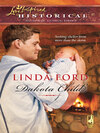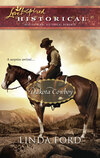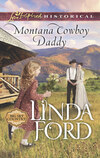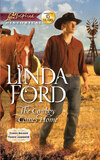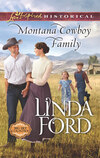Kitabı oku: «The Road to Love», sayfa 3
Yes, God would take care of her. She believed it with every breath she took. But she couldn’t be content like the lilies with only the fields for her home. She wanted four solid walls and a roof. She wanted to be warm and dry, have food in her cellar or—thinking of the chickens and the meat and eggs they provided—on two squawking legs.
Certainly Doyle would generously provide for her, but it didn’t feel the same as the security of her own piece of land and ownership of her own house.
She sighed from the bottom of her heart.
“Problems?” Hatcher asked.
His question brought her back from thoughts of her visit with Doyle. She realized what she longed for was someone with whom she could discuss her farming problems. To Doyle there was no problem. Or at least, a simple solution. Sell. She laughed a little to hide her embarrassment at being caught spending her time in wishing for things that might never be.
“You found a hired man today?” Hatcher asked.
“I didn’t.”
He glanced over his shoulder, a puzzled look on his face.
“When I came through town there were at least a dozen men hanging about looking for work.”
She shrugged, noting that today Hatcher wore a clean, unpressed shirt in washed-out gray. “I started to put up the ad.” Her skin had tingled, her face grown hot at the men watching her, waiting to read the notice. “I changed my mind.” She didn’t need help that badly—to invite a stranger into her life. “I decided I can manage on my own.”
He turned his attention back to his tea. “Hope all your tractor needs is an adjustment to the carburetor.”
A sigh came from her depths. “My tractor has seen its best days.”
“No horses?”
“I had to trade the last one in the fall for feed to see the cows through the winter.”
“Been tough all over.”
She murmured agreement. “I’m not complaining.”
“Me, either.” He downed the rest of his tea, got to his feet and handed her the cup. “You give me the milk buckets and I’ll take care of the cows.”
“No need.”
“I never accept a meal without doing a job.”
“It was my thanks.”
He made no move toward leaving. “I ’spect the young ones need you.” He nodded toward the interior of the house.
As she hesitated, torn between the truth of his statement and her reluctance to accept any more help from him, Dougie hurried out with the pails solving her need to make a choice.
“I’ll help you, Hatcher.”
The hobo patted Dougie on the head. “Good man.”
Kate choked back a snort at the way her son preened and said, “Very well.” But they didn’t wait for her permission. She watched the man and boy saunter to the barn, smiling as Dougie tried to imitate Hatcher’s easy rolling gait then she hurried inside. There seemed no end of work to be done. She needed to make farmer’s cheese. The ironing had yet to be done and couldn’t be put off any longer. Mary needed a dress for tomorrow and it had to be ironed. And most importantly, she had to have a look at the tractor and see what it needed to get it running. “More than a prayer,” she mumbled.
“Momma?”
“Nothing, Mary. Just talking to myself. Now help me with the dishes then run and shut in the chickens.”
“Momma. I hate the chickens.”
“I know you do but what would we eat if we didn’t have eggs and the occasional chicken?”
“I don’t like eating chicken.”
“I can never figure out why you object to eating an animal you’d just as soon see dead.”
“I keep seeing the way they gobble up grasshoppers.” Mary shuddered.
“But you hate grasshoppers.”
“I don’t want to eat anything that eats them.” Mary shuddered again.
Kate shook her head. This child left her puzzled.
Hatcher returned with the milk, his presence heralded by Dougie’s excited chatter.
“Your milk, ma’am.”
“Thank you. Seems I’m saying that a lot.”
“Won’t be any longer. I’ll be gone in the morning. My prayers for you and the family.”
And he strode away.
Kate stared after him a moment, wondering about the man. But not for long. She had milk to strain and separate. She had to try and persuade Mary to actually enter the chicken yard and shut the henhouse door and then she needed to supervise the children’s homework.
Next morning, as soon as the chores were done, Kate pulled on the overalls she wore for field work, dusted her hands together as if to say she was ready for whatever lay ahead, and pulled an old felt hat tightly over her head. It took her several minutes to adjust it satisfactorily. She recognized her fussing for what it was—delaying the inevitable. But the sooner she got at it, the sooner she’d conquer it. She gave her trousers a hitch, thought of the words from the Bible, She girdeth her loins with strength, and smiled.
“Here I go in the strength of the Lord. With His help I can conquer this,” she murmured, and hurried out to the lean-to on the side of the barn where the beast waited to challenge her. Abby Oliver had parked it there last fall with dire warnings about its reliability.
Kate confronted the rusty red machine, her feet fighting width apart, her hands on her hips and in her best mother-must-be-obeyed voice, the voice she reserved for Dougie’s naughtiest moments, said, “Could you not do the charitable thing and run? How else am I going to get the crop in the ground?” No need to think about getting it off in the fall. That was later. She shifted. Crossed her arms over her middle and took a more relaxed stance. “After all,” she cajoled. “I’m a woman alone. Trying to run this farm and take care of my children. And I simply can’t do it without your help.” She took a deep breath, rubbed the painful spot in her jaw. God, it’s Your help I need. Please, make this beast run one more season. She’d asked the same thing last spring. And again in the fall.
She waited. For what? Inspiration? Assurance? Determination? Yes. All of them.
My God shall supply all your need according to his riches in glory.
Well, she needed a tractor that ran. God knew that. He’d promised to provide it.
She marched around the tractor once. And then again. And giggled. She felt like one of the children of Israel marching around the walls of Jericho. If only she had a pitcher to break and a trumpet to sound…
She made a tooting noise and laughed at her foolishness.
She retrieved a rag from the supplies in the corner and faced the beast. “I will get you running somehow.” She checked the oil. Scrubbed the winter’s accumulation of dust off the motor, poured in some fuel and cranked it over. Or at least tried. After sitting several months, the motor was stiff, uncooperative.
She took a deep breath, braced herself and tried again. All she got was a sore shoulder. She groaned. Loudly.
“Maybe Doyle is right,” she told the stubborn beast.
“Maybe I should sell everything and move into town. Live a life of pampered luxury.”
“Ma’am.”
Her heart leaped to her throat. Her arms jerked like a scarecrow in the wind. She jolted back several inches.
“You scared me.” Embarrassed and annoyed, she scowled at Hatcher. “My name is Kate. Kate Bradshaw. Not ma’am.” She spoke slowly making sure he didn’t miss a syllable.
“Yes, ma’am. Perfectly good name.”
“So you said. What do you want?”
He circled the tractor, apparently deep in thought, came to halt at the radiator. “Want me to start her up for you?”
She restrained an urge to hug him. “I’d feed you for a month if you did, though I have to warn you, I’ve been babying it along for the better part of three years now.”
Hatcher already had his hands in the internal mysteries of the machine.
“Do you need some hay wire?” she asked.
He didn’t turn. “Going to take more than hay wire to fix this.”
“I thought you could fix anything with a hunk of wire or wad of bubblegum.”
“Hand me that wrench, would you?” He nodded toward the tool on the ground, and she got it for him, her gratefulness mixed with frustration that she couldn’t do this on her own. And yes, a certain amount of fear. If she failed, they would all starve. She wasn’t about to let that happen so some Godly intervention on her behalf would be welcome.
He tightened this, adjusted that, tinkered here and there. Went to the other side of the tractor and did more of the same. Finally, he wiped his hands on a rag Kate handed him, then cranked the motor. And blessing of blessings, it reluctantly fired up.
“I’ll take it out for you,” Hatcher hollered.
She nodded, so grateful to hear the rumbling sound she couldn’t stop grinning. She pointed toward the discer and he guided the tractor over and hitched it up. The engine coughed. Kate’s jaw clenched of its own accord. She rubbed at it and sighed relief when the tractor settled into a steady roar.
The discer ready to go, Hatcher stood back.
“Thank you so much. If you’re still around come dinnertime, I’ll make you a meal.”
He nodded, touched the brim of his hat. “Ma’am.”
Kate spared him one roll of her eyes at the way he continued to call her ma’am then climbed up behind the steering wheel, pushed in the clutch, pulled the beast into gear—
It stalled.
The silence rang.
“What happened?” she asked.
“I’ll crank it.” He did his slow dance at the front of the tractor. Again, it growled to life but as soon as she tried to move it, it stalled.
They did it twice more. Twice more the tractor stalled for her.
“Let me.” Hatcher indicated she get down which she gladly did, resisting an urge to kick the beast as she stepped back. He got up, put the tractor into gear and drove toward the field without so much as a cough.
He got down, she got up and the tractor promptly stalled.
Her gut twisted painfully like a rope tested by the wind. She curled her fingers into the rough fabric of her overalls. “It doesn’t like me,” she wailed.
“I’m sure it’s nothing personal,” he murmured, and again started the engine and showed her how to clutch. She followed his instructions perfectly but each time the beast stalled on her.
Her frustration gave way to burning humiliation. What kind of farmer could she hope to be if she couldn’t run the stupid tractor? How could she prove she could manage on her own when her fields were destined to lie fallow and weed infested unless she could do this one simple little job. Hatcher made it look easy. She favored him with a glance carrying the full brunt of her resentment, which, thankfully, as she sorely needed his help, he didn’t seem to notice.
“I’ll see what I can do.” Hatcher changed places with her. The tractor ran begrudgingly but it ran, as she knew it would. He didn’t seem to have a problem with it.
He started down the side of the field, took it out of gear, jumped down and she got back up. She did everything he had. She was cautious, gentle, silently begging the beast to run.
It stalled.
Tears stung the corners of her eyes. She blinked them away. She would not cry. Somehow she’d conquer this beast. “I have to make it run or I’ll never get my crop in, but this thing has become my thorn in the flesh.”
“A gift then.”
She snorted. “Not the sort of gift I’d ask for.”
“Two Corinthians twelve verse nine, ‘My grace is sufficient for thee: for my strength is made perfect in weakness. Most gladly therefore will I rather glory in my infirmities, that the power of Christ may rest upon me.’ And verse ten, ‘When I am weak, then I am strong.’ Guess it’s when you can’t manage on your own and need God’s help, you find it best.”
She stared, her jaw slack, not knowing which surprised her more, the challenge of his words or the fact of such a long speech from the man who seemed to measure his words with a thimble.
He met her startled gaze, his eyes bottomless, his expression bland.
She pulled away, looking at nothing in particular as the words of the Bible sifted through her anger, her frustration and fear, and settled solidly in her heart. She needed God’s help. And He had promised it. When she needed it most, she got it best. She liked that idea.
In the heavy silence, she heard the trill of a meadowlark. The sound always gave her hope, heralding the return of spring. She located the bird with its yellow breast on a nearby fence post and pointed it out to Hatcher. “Can you hear what the bird is saying? ‘I left my pretty sister at home.’” She chuckled. “Jeremiah told me that.” He’d also told her to keep the farm no matter what. That way she’d always have a home.
Hatcher nodded. “Never heard that before. Jeremiah your husband?”
She listened to the bird sing his song twice more before she answered. Jeremiah taught her everything she knew about farming. But somehow she hadn’t learned the mysteries of mechanical monstrosities. “He’s been dead three years.”
“Sorry.”
“Me, too.” She turned back to the tractor. “Would you mind cranking it again? I have to get this field worked.”
He did so. The engine started up easily but as soon as Kate tried to make the tractor move, it quit.
“Maybe it just needs babying along. I’ll run it awhile.”
Kate stubbornly clung to her seat behind the steering wheel. “You were in a hurry to leave until you heard my husband is dead.”
“I’m still leaving.”
She stared ahead. She wanted to refuse Hatcher’s offer. She didn’t need pity. She wouldn’t accept a man’s sudden interest in the fact she was alone. Widowed. An easy mark. Desperate.
“Crank it again. I have to do this myself.”
But nothing changed. The minute she tried to ease the tractor forward, actually make it do the work it was created for, the engine stalled.
This was getting her nowhere. The wide field seemed to expand before her eyes, and blur as if viewed through isinglass. She brushed the back of her hand across her eyes to clear her vision and jumped down. “Fine. See if it will run for you.”
He started the temperamental piece of metal, climbed behind the wheel, eased it into gear and moved away.
She wanted to run after him and demand to drive the tractor, demand the tractor cooperate with her. Instead she stared after him. One, two, three…only when she gasped ten, did she realize she’d been holding her breath waiting for the beast to respond to Hatcher as it did to her.
It didn’t. It bumped along the field as defiant as a naughty child.
At least Hatcher had the courtesy not to look back and wave.
He made fifty yards before he stopped, climbed down and plodded back to her. “I’ve got some spare time. I’ll work until noon. By then I’ll have all the kinks worked out of the engine.”
Kate wanted to protest even though she was relieved to have a few more hours unchallenged by her stubborn tractor. She swallowed her pride. “Thank you.”
He turned back and she hurried across the field to the house. He deserved some kind of compensation for doing this. She’d make cookies and biscuits to give him for his journey.
When noon came, she carried sandwiches and hot tea to the field and handed him the bundle she’d made of cookies and biscuits.
“What’s this?” he asked.
She explained.
At first she thought he’d refuse, then he took the bundle.
“Thanks. Appreciate it.”
She’d been dreading it all morning but it was time to take over the tractor. She had no choice if she were to get the field prepared for seeding. And then what? But all morning she’d thrown up a barrier at the question, refusing to deal with the obvious answer—as soon as the field was worked she’d have to seed it and then—no, she wouldn’t think that far ahead.
She climbed behind the wheel. The machine had run all morning. She’d glanced that direction often enough to assure herself of the fact. Hatcher had jumped down a few times and made some sort of adjustment then continued on.
But again, it stalled as soon as she tried to drive it. “Why can’t I make it work?” she yelled.
He shrugged. “I’ll finish out the day.”
“Great,” she muttered. She should be grateful and she was. But she was also on the edge of desperation. If he worked all day he wouldn’t finish even one field. Then he’d be on his way. And she’d be stuck with the beast. And two more fields that needed working. Suddenly marrying Doyle seemed like the most sensible thing in the world.
All afternoon, she considered her options. Marry Doyle and sell the farm. An easy way out, yet not one she was willing to take. Rent out the farm. But renting it out would mean they’d have to move. No man would want the farm without the house. No. There had to be a way she could make this work. If only the tractor would run for her as readily as it did for Hatcher Jones.
She had one option left. Somehow, she had to convince the man to stay. At least until she got the crop in.
She had hot water ready for him to wash in when he came in from the field. “Supper is waiting.” She used her purchased tin of meat—a spicy loaf—mixed it with rice and tomatoes and spices. She’d made bread pudding for dessert, adding a generous handful of raisins. Not the best of fare but she’d done what she could with her meager supplies.
She waited until the children ate then took tea out to Hatcher. It stuck in her throat to beg, but she’d made up her mind.
“Mr. Jones, is there any way I can persuade you to stay around to put the crop in for me? I wouldn’t be able to pay you much. But I could let you live in the settler’s shanty on the other quarter.”
Chapter Four
At her request, profound shock reverberated down Hatcher’s spine and out through his toes. He felt the texture of the wooden step through the thin soles of his boots. His insides had a strange quivering feeling. For a matter of several heartbeats he could not pull together a single coherent thought. Then he heard the persistent buzzing of an anxious fly, sucked in air laden with the scent of the freshly worked soil and willed the crash of emotions away.
She had no idea what she asked; the risks involved in her asking. If she did, her request would be that he move along immediately.
Words of remembrance flooded his mind, words branded into his brain within weeks of starting his journey, put there by reading and memorizing passages of scripture pointed directly at him. And the Lord’s anger was kindled against Israel and he made them wander in the wilderness forty years, until all the generation that had done evil in the sight of the Lord was consumed. Numbers thirty-two, verse thirteen, and verse twenty-three, Behold ye have sinned against the Lord: and you can be sure your sin will find you out.
He had sinned. For that he’d repented, but the scars, the burden and guilt of what he’d done could not be erased.
He was a wanderer. There was no remedy for that. “Ma’am, I’m a hobo. I never stay in one place.”
She made an impatient sound. “I thought most of the men were looking for work. I’m offering you that along with meals and a roof over your head.”
Silently he admitted the majority of men he’d encountered were indeed searching for a job, a meal and hope. He was not. He wanted only his Bible, his knapsack and forgetfulness. “Sky’s my roof.”
“It’s been known to leak.”
How well he knew it. They both looked toward the west, where clouds had been banking up most of the afternoon.
“Rain’s a good thing,” he said. “It ‘watereth the earth and maketh it bring forth and bud, that it might give seed to the sower, and bread to the eater.’ Isaiah fifty-five, verse ten.”
She snorted. “Rain is good but not if you don’t have shelter.”
He thought to remind her of Psalm ninety-four, verse twenty-two, My God is the rock of my refuge, and point out God was his shelter but decided to save himself any possibility of an argument and said, “Got me a tarpaulin.”
“My father had itchy feet. I’ve spent more than my share of nights under a tarp telling myself it kept off the rain. Trying to convince myself I wasn’t cold and miserable and would gladly trade my father for a warm place to spend the night.”
Her answer tickled his fancy. “That how you got this farm? Traded your father for it.”
She made a derisive sound. “Didn’t have to. I married Jeremiah and got myself the first permanent home I ever had.”
He closed his mind to remembrances of his first and only permanent home.
She continued, not noticing his slight distraction. “I fully intend to keep it. I will never again sleep out in the cold and open. My children will never know the uncertainty I grew up with.” She sighed. “As you already said, ‘the rain watereth the earth and maketh it bring forth and bud,’ but first the seed has to be in the ground. I can’t put the crop in when I can’t make the tractor run. Something you seem to be able to do.”
Somehow he’d had the feeling she’d see the verse differently than he. He’d meant it as a comfort, she took it as a warning. “Never say never. Tomorrow will be different.”
“You think the beast will run for me tomorrow?”
“I tuned it up best I could.”
“I hope you’re right. Somehow I doubt it.” She turned to face him fully. “Is there any way I can persuade you to stay just long enough to get the crop in?”
Her persistence scraped at the inside of his head, making him wish things could be different and he could stay, if only for the season. But like Cain, he was a vagabond and a wanderer. “I’ve already overstayed my limit. Besides, you don’t need me. There are plenty of willing and able men out there.”
The look she gave him informed him she was only too aware of how willing some of the men were.
“I’ll pray for you to find the right man for the job.” It was all he could do.
She nodded, and smiled. “Thank you. I realize the prayer of a righteous man availeth much.”
He didn’t know her well enough to know if she appreciated his offer to pray or considered it a handy brush-off. He pushed to his feet, preparing to depart.
“Anyway, thanks for your help today,” she said.
“Thank you for another excellent meal. And the cookies and biscuits.” He stuck his hat on his head.
“Ma’am.” He strode down the road toward the slough. He’d broken camp three times now, had been on his way this morning when he heard Mrs. Bradshaw talking to herself again. One thing the woman had to learn, you couldn’t fix a machine by talking to it the way you could persuade a horse to cooperate. You had to think differently. Listen to the sounds the machine made and learn what they meant.
He tried not to think of the woman’s repeated failure to operate the tractor. And as promised, he prayed for someone knowledgeable and trustworthy to come along and help her.
He could do no more. The tractor was old. But if she treated it kindly…
A cold wind tugged at his shirt as he made his way to his usual spot. He scurried around finding deadwood and leaves for a fire. The grass picked bare, he searched the trees for dry branches. By the time he got enough wood to warm him, the wind carried icy spears. He pulled on the worn, gray sweater he’d had for ten years and a black coat he’d bartered for. The elbows were shredded, the hem frayed, but it had a heavy wool lining and had kept him relatively warm through many winters.
He pulled the canvas tarp out of his pack, wrapped it around his shoulders, adjusted it so the rip was hidden and hunkered down over the fire.
He opened his Bible and read in the flickering firelight. But his thoughts kept leaving the page.
Mrs. Bradshaw had a huge load to carry. The farm was too much for a woman to handle on her own. He wished he could stay and help but it wasn’t possible. He had to keep moving. He couldn’t stay in one place long enough…
He shuddered and pulled the tarp over his hat.
Best for everyone if he moved on.
Mrs. Bradshaw could find a hired man in town. Like she said, most men were looking for work. And the majority of them were decent men, down on their luck.
He tried not to remember the few he’d met who were scoundrels. He was good at not remembering. Had honed the skill over ten years. But he couldn’t stop the memory of one man in particular from coming to mind.
Only name he knew him by was Mos. A man with an ageless face and a vacant soul who had, in the few days Hatcher reluctantly spent time in his association, robbed an old lady of her precious groceries, stole from a man who offered him a meal, and if Hatcher were to believe the whispers behind other men’s hands, beat another man half to death when Mos was caught with the man’s daughter under suspicious circumstances.
When Mos moved on, Hatcher headed the opposite direction. He needed no reminders of violence.
The cold deepened. Rain slashed across his face. He shifted his back into the wind.
Mrs. Bradshaw was a strong, determined woman. She’d find a way of getting her crop in. He’d pray Mos wasn’t in the area. Or men like him.
She was right about one thing, though. No matter how long he spent on the road, he never learned a way of ignoring a cold rain. Worse than snow because you couldn’t shake it off. It seeped around your collar and cuffs, doused the fire, left you aching for the comforts of a home.
He thought of his home. Something he managed to avoid for the most part. He had Mrs. Bradshaw and her talk of protecting her place to thank for the fact such thoughts were more difficult to ignore tonight.
But he must. The place he’d once known as home was gone. Now his home was the world; his father, God above; his family, believers wherever he found them, although he never stayed long enough to be able to call them friends.
The wind caught at his huddled shelter and gave him a whiff of cows and hay. Before he could stop it, a memory raced in. He and Lowell had climbed to the hayloft to escape a rainstorm. Lowell, three years older, had been his best friend since Hatcher was old enough to recognize his brother’s face. Lowell had one unchanging dream.
“Hatch, when you and I grow up we’re going to turn this farm into something to be proud of.”
They were on their stomachs gazing out the open loft doors. Rain slashed across the landscape, blotting out much of the familiar scene, but both he and Lowell knew every blade of grass, every cow, every bush by heart.
“How we gonna do that, Low?” he asked his big brother.
“We’re going to work hard.”
Hatcher recalled how he’d rolled over, hooting with laughter. “All we do is work now. From sunup to sundown. And lots of times Daddy pulls us from bed before the sun puts so much as one ray over the horizon.”
Lowell turned and tickled Hatcher until they were both dusty and exhausted from laughing. “Someday, though, our work will pay off. You and me will get the farm from Daddy and then we’ll enjoy the benefit of our hard work.”
Hatcher sat up to study his brother and suddenly understood why Lowell didn’t complain or shirk the chores their father loaded on him. “That why you work so hard now?”
Lowell nodded. “If you and me keep it up we’ll have a lot less work to do when it’s ours.” Lowell flipped back to his stomach and edged as close to the opening as he could. “See that pasture over there? It could carry twice as many cattle if we broke it and seeded it down to tame hay. And that field Daddy always puts wheat in has so many wild oats he never gets top price for his wheat. Now, the way I see it, if we planted oats for a few years, cut them for feed before the wild ones go to seed, I think we could clean up the field.”
For hours they remained in the loft, planning how to improve the farm. Hatcher remembered that day so clearly, because it was the first time he and Lowell had officially decided they would own the farm some day. As months passed, and he began to observe and analyze, Hatcher, too, came up with dreams.
But it was not to be.
If he let himself think about it he’d gain nothing but anger and pain and probably a giant headache. He determinedly shoved aside the memory.
Too cold and damp to read his Bible, he began to recite verses. He began in Genesis. He got as far as the second chapter when the words in his mind stalled. It is not good for the man to be alone. He’d said the words hundreds of times but suddenly it hit him. He was alone. And God was right. It wasn’t good. Like a flash of lightning illuminating his brain, he pictured Mrs. Bradshaw stirring something on the stove, that persistent strand of hair drifting across her cheek, her look alternating between pensive and determined. He recalled the way her hands reached for her children, encouraging shy Mary, calming rambunctious Dougie. He’d also seen flashes of impatience on her face, guessed she was often torn between the children’s needs and the weight of the farm work. He could ease that burden if he could stay.
It wasn’t possible.
He shifted, pulled the tarp tighter around his head and started reciting from the Psalms.
“Mr. Jones?”
Hatcher jerked hard enough to shake open his protective covering. Icy water ran down his neck. The shock of it jolted every sense into acute awareness.
The voice came again. “Mr. Jones?”
He adjusted the tarp, resigned to being cold and wet until the rain let up and he found something dry to light fire to.
“Mr. Jones?”
He didn’t want to talk to her. Didn’t want to have her presence loosening any more memories so he didn’t move a muscle. Maybe she wouldn’t see him and go away.
“Mr. Jones?” She was closer. He heard her footsteps padding in the wet grass. “There you are.”
He lowered the tarp and stared at her, wrapped in a too-large black slicker. She held a flickering lantern up to him. The pale light touched the planes and angles of her face, giving her features the look of granite.
“It’s raining,” he said, meaning, What are you doing out in the wet?
“It’s cold,” she said. “Your fire’s gone out.”
He didn’t need any reminding about how cold and wet he was. “Rain put it out.”
Ücretsiz ön izlemeyi tamamladınız.
